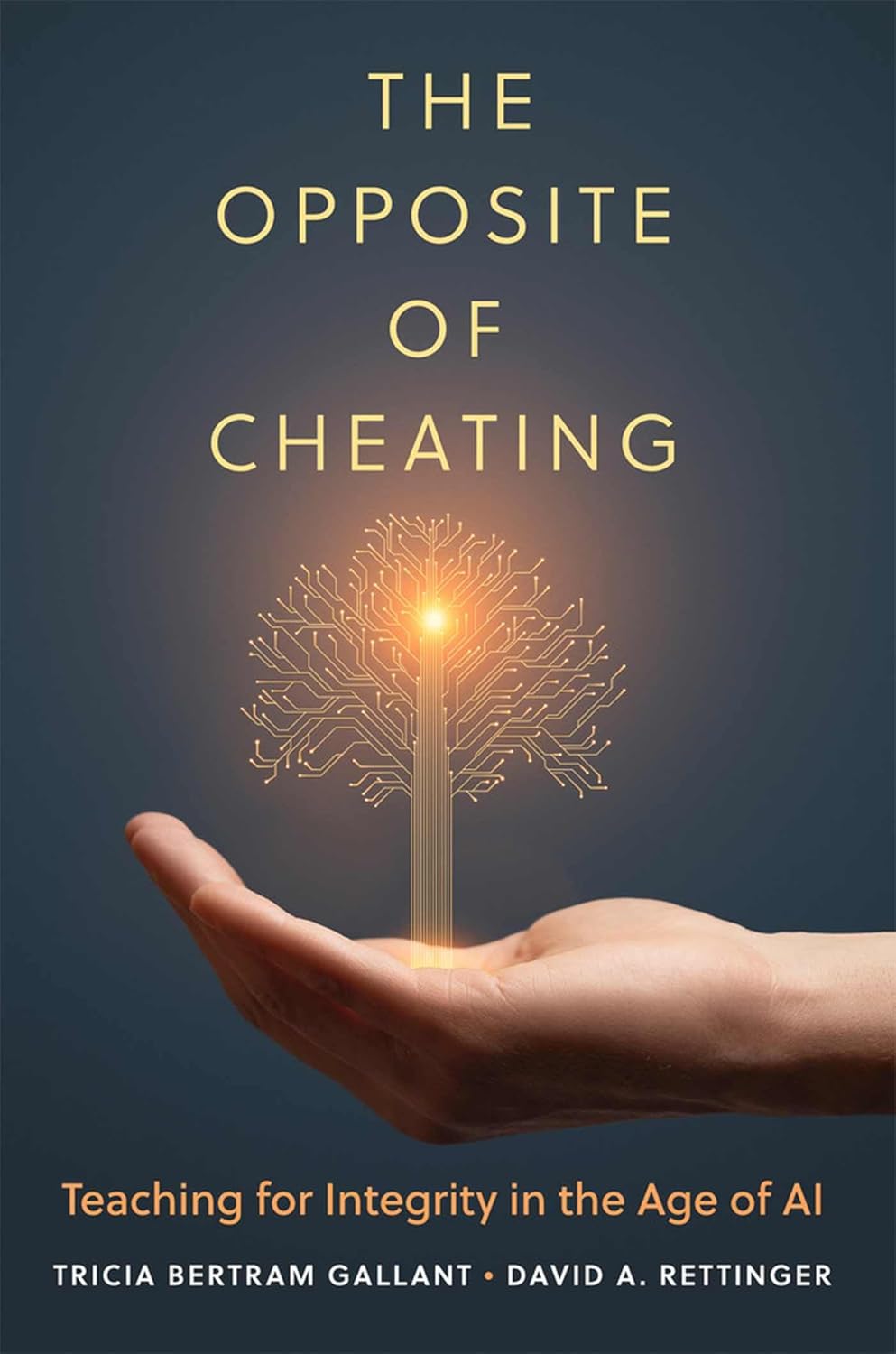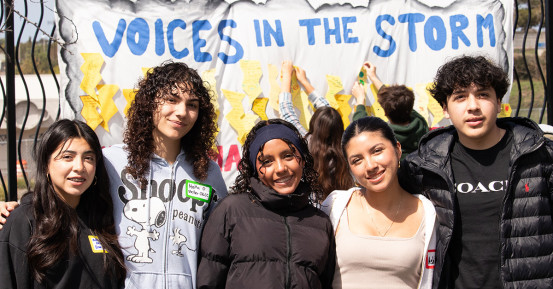How to Teach in the Age of AI
Academic integrity expert Tricia Bertram Gallant, director of UC San Diego’s Academic Integrity Office and Triton Testing Center, answers this question in her latest book.
Story by:
Published Date
Article Content
In the age of AI, how can educators teach well and students learn best?
Tricia Bertram Gallant, an internationally-renowned expert in academic integrity, answers those questions in her latest book, “The Opposite of Cheating: Teaching for Integrity in the Age of AI.” Bertram Gallant is the director of UC San Diego’s Academic Integrity Office and Triton Testing Center. She is also President Emeritus of the International Center for Academic Integrity. Her fifth book, “The Opposite of Cheating,” was released in March 2025 and co-written with David Rettinger, Associate Chair of Psychology at the University of Tulsa. UC San Diego Today sat down with her to learn more about her work.
Talk about your newest book, “The Opposite of Cheating.”
With this book, we wanted to help faculty keep their educator hat on when they're thinking about cheating, what they're trying to teach, why they're teaching that and how they can assess whether students have learned it. The answer to our book title, “The Opposite of Cheating,” is learning, not integrity. Teaching for integrity in the age of AI isn’t anything new. We combined the literature from the scholarship of teaching, learning and integrity to demonstrate that they are symbiotic. We hope to bring the temperature down a little bit with this book and put the focus on good teaching.

What does good teaching look like in the age of AI?
It looks the same as it did before the age of AI: What are the learning outcomes for this class, and do they need to change in the age of AI?
For example, I was talking recently with a biology professor. One of her assignments required students to write about an underrepresented biologist and she was grading the papers for, among other things, conciseness. I asked if she needed to assess for conciseness when an AI tool can do that work and perhaps it would be okay to allow the students to cognitively offload that function to a tool.
I ask educators to look at how they assess whether students have mastered—or to what level the students have mastered—their learning objectives. Are they still relevant, meaningful and authentic? Do they raise students’ intrinsic motivation for learning and is it still a valid way to assess learning, given that ChatGPT can do a lot of the work for students?
We’re also asking teachers to start to think more programmatically. In an introductory course where students need to understand foundational knowledge, maybe AI should not be a part of that class and the assessments should be in person and closely observed. After all, if students don't learn foundational skills, they're not going to be able to responsibly, ethically and intelligently offload to AI later, because how can you critique the output of AI if you don't know anything?
What do you say to people worried about advances in artificial intelligence?
I don't blame them. I'm a skeptical optimist about the impact that AI will have on the future of teaching, learning and assessing. I think we always have to ask, ‘What is the best technology to help teachers teach with integrity, to help students learn with integrity, and help us have degree integrity—earning a degree without cheating—and how can we incorporate those thoughtfully?’ At the very least, educators should play with the tools; for UC San Diego faculty, use Triton GPT with your syllabus or assignment prompts and see how it interacts with them. Become AI literate. That might dispel or increase some of your fears. As educators and intellectuals, it's our responsibility to recognize that AI is here and it will have an impact, whether we want it to or not. So, we might as well at least try to shape that impact in a positive way.
You’ve written five books and multiple journal articles about academic integrity. What continues to excite you about this work?
I've always wanted to work in education, in a job where I see the fruits of my labor, and that's what keeps me engaged. This work is never-ending. I'm not going to solve this problem because we're dealing with humans and we deal with new humans every academic year. There are always new challenges.>
I like trying to help people remember that universities are not perfect, so we shouldn't assume that degree integrity will magically happen. We are in the business of certifying knowledge and abilities, not just facilitating the development of those things.
When I talk to people, I see change. I see people become less fearful or think differently about responding to cheating when it happens, making pedagogical changes or changing their assessments. That's really cool.
What advice do you have for educators?
Humans naturally love to learn and your students are human. Unfortunately, the schooling system may have diminished that love of learning a little bit and replaced it with extrinsic motivation and a transactional approach to education. Help your students see the value of learning by sparking intrinsic motivation and self-efficacy. That could mean changing your assessments or assigning projects that are more authentic and meaningful to the real world.
Also, remember that humans tend to make mistakes. When your students do make mistakes, don't take it so personally. Respect that they’re humans and they're going to mess up once in a while, so take it as an opportunity to be an educator. We've all made mistakes. It's hard to learn from them if nobody helps us. The good news is that at UC San Diego, our institutional approach is to create a teachable moment out of the cheating moment.
At UC San Diego, our institutional approach is to create a teachable moment out of the cheating moment.
You May Also Like
Stay in the Know
Keep up with all the latest from UC San Diego. Subscribe to the newsletter today.




